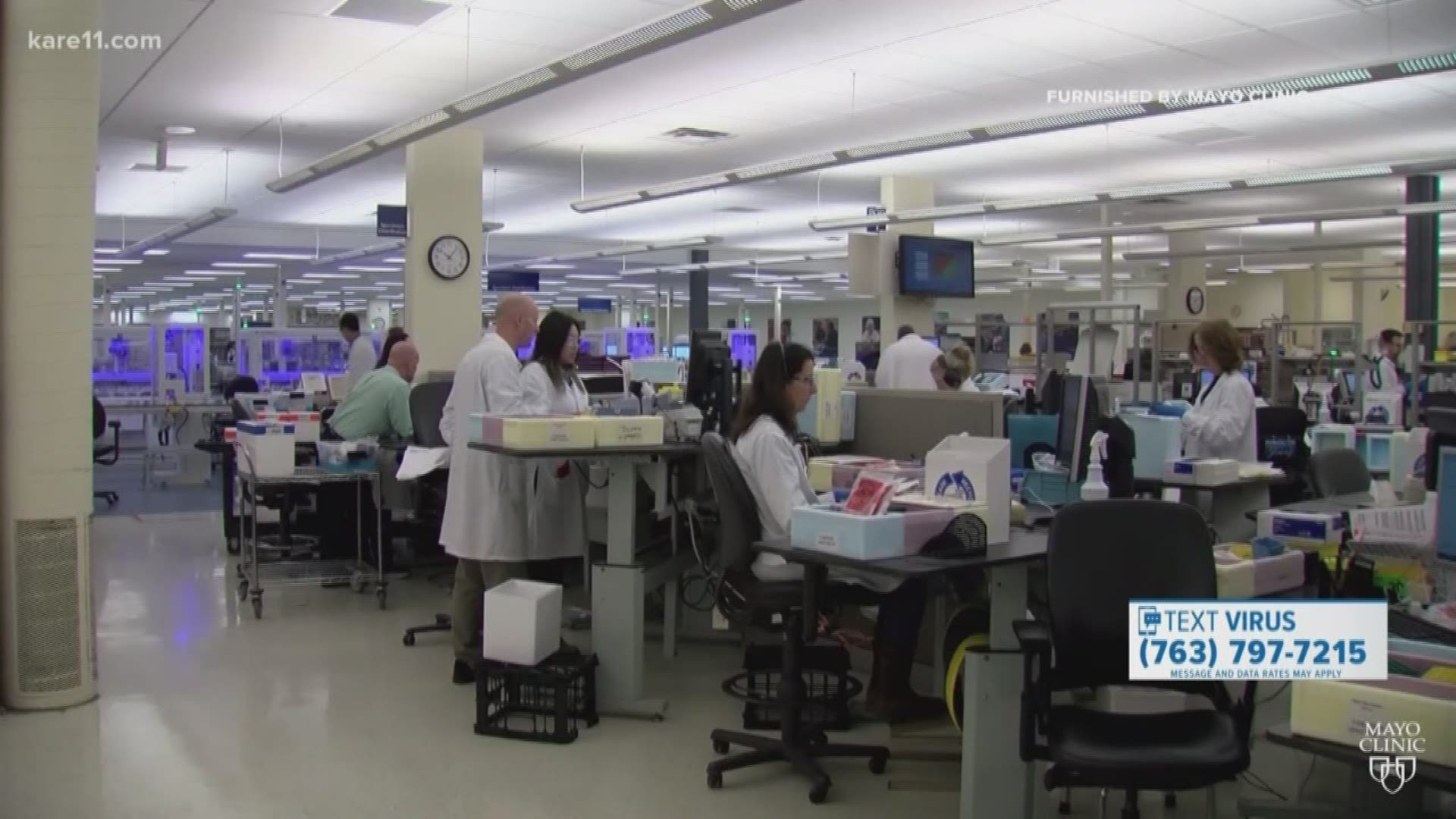ROCHESTER, Minn. — A new research task force at the Mayo Clinic is working on new tests, tracking and trial therapies for the coronavirus, and it's already finding solutions that are having an impact in Minnesota.
Days after enlisting the help of the Mayo team, the Minnesota Department of Health says its coronavirus testing backlog went from more than 1,700 samples down to zero. This all happened despite a lingering shortage of testing supplies.
"The (Mayo testing team) did some trouble shooting and adapted and found some ways to work around that (shortage), said Dr. Stacey Rizza, who is part of the Mayo Clinic's Coronavirus Research Task Force. "We're now able to scale this test up and make it available to far more people."
Dr. Rizza, who is part of a team developing new clinical trials of experimental drugs, says the research happening now takes communication across many disciplines simply because of how fast the data is changing.
"We're learning from countries that went through this before us, particularly a study in Iceland," Dr. Rizza said. "When they did more general testing of large parts of the population, it appears that about 50% of people who are PCR positive and are infected with the virus, are asymptomatic. It tells us that not as many people are actually experiencing symptoms as maybe we originally thought and that those people who are maybe asymptomatic are still capable of shedding the virus and spreading the virus."
Dr. Rizza says that research into asymptomatic cases helps explain why social distancing is still so critical, and why efforts like #StayHomeMN are even more essential. In time, she says she's hopeful testing and research can expand to cover more of our own population.
"I think (Mayo) systems were well designed and created in a way that we can scale them for many more patients," Dr. Rizza said. "What we'll have to discover over time, as we look at more tests, is in what groups are they most useful? Is this a test that's most useful in people who are symptomatic or is this a test we can also trust in people who are asymptomatic."
In the meantime, Dr. Rizza says Governors across the country are making very difficult decisions about limiting social interaction and shutting down businesses and schools, as they wait for more research and data to come in. In the meantime she has two pieces of advice for the public.
"Be patient and diligent, our understanding of this virus changes almost daily, so sometimes policies change daily," Rizza said. "It's not because people are flip-flopping, it's because we understand things better and have more data, and just ask that people respect those restrictions and respect those guidelines."
KARE 11’s coverage of the coronavirus is rooted in Facts, not Fear. Visit kare11.com/coronavirus for comprehensive coverage, find out what you need to know about the Midwest specifically, learn more about the symptoms, and keep tabs on the cases around the world here. Have a question? Text it to us at 763-797-7215. And get the latest coronavirus updates sent right to your inbox every morning. Subscribe to the KARE 11 Sunrise newsletter here. Help local families in need: www.kare11.com/give11.
The state of Minnesota has set up a hotline for general questions about coronavirus at 651-201-3920 or 1-800-657-3903, available 7 a.m. to 7 p.m.
More information on the coronavirus:

